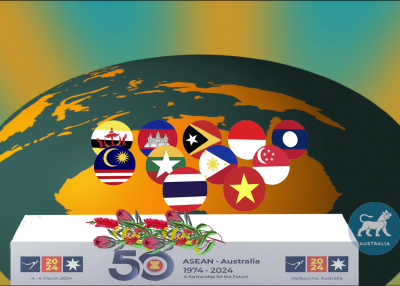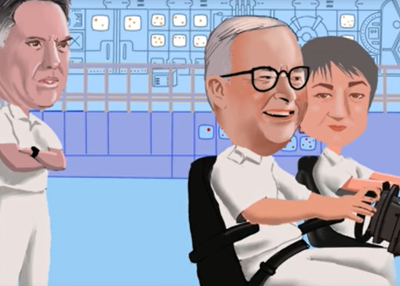Briefing MONTHLY #51 | June 2022
Labor’s new era | Asian-Australian Rich List | Japan & PNG vote | SE Asia baton changes | China’s new BRIs | Asia’s top unis
Animation by Rocco Fazzari.
NEW BROOMS
Foreign Minister Penny Wong has the frequent flyer points, Defence Minister Richard Marles has the best after dinner story and Prime Minister Anthony Albanese has a new bamboo bike. It is still early days for the new Labor team in regional relations in the most challenging environment since the Pacific War. But beneath a flurry of overseas flights there is both a change in tone and some old realities.
China: Richard Marles secured the government’s biggest diplomatic win so far with a meeting on the sidelines of the Singapore Shangri-La Dialogue with his Chinese counterpart Wei Fenghe, organised when they met at dinner. But the fact it happened despite concurrent tensions over an incident between Chinese and Australian aircraft over the South China Sea suggested China was ready to end the three-year freeze on ministerial contact.
Marles also used his Dialogue speech to set out the clearest exposition of the new government’s balance between changed tone and policy in foreign affairs. “We will always be forthright in articulating our national interest and in advocating for our region’s security. But this Government will be respectful, including with countries where we have complex relationships. This includes China. We will be steady and consistent, looking for avenues of cooperation where they exist while recognising China’s growing power and the manner in which that is reshaping our region.” See DIPLOMATICALLY SPEAKING below.
Chinese ambassador Xiao Qian potentially offered the next step in some sort of rebalanced relationship when he used the discussion after a speech to the Australia-China Relations Institute to play down the significance of the list of 14 grievances from 2020. He said they were only the result of an “informal discussion” between Chinese officials and a reporter rather than the list of preconditions or demands. The next test may be whether Australia’s ambassador in Beijing now gets something equivalent to the access Xiao has received as a new ambassador in Australia.
Indonesia: Anthony Albanese may have bonded with Indonesia’s President Joko Widodo with a bike ride around the Bogor Palace, a promise to attend the Group of 20 Summit in Bali, and a reminder of Australia multiculturalism by taking along his Muslim industry minister Ed Husic. However, in following the now common practice of visiting Indonesia first in a new prime ministerial term, he has also set increased Australian investment in Indonesia as the benchmark for bilateral success under his government.
While the prime minister noted the opportunities for more bilateral trade he focused more on the intractable issue of persistent low investment declaring: “I want to see more investment here in Indonesia to help with the development of Indonesia, but also to benefit Australian companies.”
This is not the first time this issue has been raised but this time there may be some more patient Australian capital coming to Indonesia from three different sources. Albanese was accompanied by representatives of Sun Cable and Monash University, which each have new ventures underway, and he has recruited former Labor minister Greg Combet to lead a delegation of superannuation funds to Indonesia.
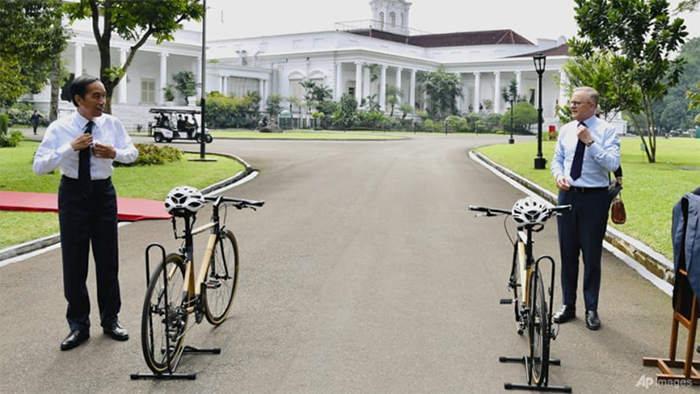
Back to work after the bike ride. Picture: Presidential office
The Indo-Pacific family: Penny Wong has set an unprecedented pace of new foreign ministerial personal engagement with visits to nine countries in little more than a month. And beyond the government’s official change of tone, she has delivered her own personal version by using Indonesian in Jakarta and visiting her hometown of Kota Kinabalu in Malaysia this week. There has been less of the big set piece speeches favoured by Marles but more of what, as Wong put it on her initial arrival in Fiji, “we're listening, and we've heard you”.
Wong has distinctively stuck with the Pacific family language of the last government despite some questions about whether it is the best way to address the region. And Labor’s approach to climate change has provided an easy door opener. But it took New Zealand’s foreign minister Nanaia Mahuta, after a bilateral meeting, to underline how the landscape has changed: “We've identified that we need to broaden our collective approach in terms of the relationship across the whole of the Pacific … We are in a new conversation space around where the Pacific priorities must be led from and it's certainly our view that the Pacific (countries) are key to articulating what that looks like.”
This week’s latest visits to Malaysia and Viet Nam balance one of Australia’s oldest and generally closest partners in Southeast Asia with the region’s newest rising economic and strategic player.
“Australia's future is tied to the future of Southeast Asia, a region we share. It's more than geography that binds us - we have genuine links in Vietnam and Malaysia: family, business, education and tourism,” she said on departure.
Pacific workers: Wong has drawn positive responses for Labor’s planned permanent resident visa for 3,000 Pacific workers a year during her regional visits. But calls for a bigger initiative are growing (see: PACIFIC COMPACT below). The biggest development in this area has been the shift of the Pacific labour schemes and the Southeast Asia-oriented agriculture visa from DFAT to the new Department of Employment and Industrial Relations under Tony Burke. These schemes have been a key component of DFAT’s increasing non-cash aid policy focus and gave some heft to its recent efforts to make itself more relevant in domestic policy. The shift would appear to underline the increased influence of the Australian Workers Union in this policy area under a Labor government.
Asian students: Labor takes over the task of encouraging international students to return to Australia with the latest statistics showing overall foreign enrolments are down 15 per cent on the first quarter of 2021. China, India, Nepal, Viet Nam and Indonesia provide 61 per cent of those students. Immigration minister Andrew Giles has acknowledged the need to speed up visa approvals which may help students re-enter the country although the bigger economic focus appears to be on skilled workers.
But more optimistic views emerged on Chinese students at the Australia China Business Council Education Forum just hours before Marles’ ice-breaking meeting with his Chinese counterpart. International Education Association of Australia chief executive Phil Honeywood said he had been specifically told by the Chinese embassy that the Chinese government wanted students back in Australia as soon as practicable. Trade and university representatives expressed cautious optimism about a modest Chinese student recovery.
India: Marles sidestepped commenting on India’s equivocal approach to the Ukraine war during his visit to New Delhi, saying every country needed to “makes its own choices.” But after meeting India’s defence and foreign ministers he appeared to step up the prospect of greater reciprocal access for each other military forces as well as greater intelligence sharing and training cooperation.
He said in an ABC interview: “Ultimately, it is trying to grow the interoperability and comfort of engagement between our two defence forces … we are looking at ways to give our defence forces more exposure to each other.” The joint statement between the defence ministers also backed more action to boost ties between their defence industries.
Aid: International Development and Pacific minister Pat Conroy has spent his initial public comments largely reiterating the details of the Pacific aid policies Labor announced during the election.
But in a subtle warning about budget pressure on aid spending he noted in one interview that the remittances from the Pacific workers schemes were “a lot more sustainable than overseas development assistance which is tied to budget cycles.”
Speaking at the Pacific Update this week he conceded the government would need to do more work on reducing the fees on remittances to make this alternative to cash aid actually work for the region. He also said Australia’s education connections the region needed to go beyond university links to internships and more diverse skills training. “Our goal is for the PALM scheme to deliver a ‘‘brain gain”, ensuring that when workers return home they bring not only remittances, but new skills so they can make a positive contribution to the development of their nations,” Conroy said.
Refugees: Amid all this change of tone, and perhaps policy, the sudden visit by Home Affairs Minister Clare O’Neill to Sri Lanka shows how some things stay the same. Labor governments have book-ended the Sri Lankan conflict (and thus its refugee flows) which began under the Hawke government and paused under the Rudd/Gillard governments. The former Labor government had to get along with a Rajapaksa family-led government in Sri Lanka to curtail asylum seeker boats. O’Neill was doing the same when she delivered a $55 million aid package aimed at discouraging a new generation of refugees with food aid and curtailing it with tracking technology.
Trade: Ironically one of the surprise additions to the government’s international affairs team – Trade Minister Don Farrell – has turned out to have taken part in one of the biggest international breakthroughs so far under the new government. The World Trade Organization Ministerial Council in Geneva – attended by Farrell and assistant trade minister Tim Ayers – put new life back into the multilateral trading system with a series of agreements on COVID vaccine patents and fishing subsidies. Farrell said Australia’s close cooperation with Fiji and other Pacific countries kept the agreement to reduce fishing subsidies, and thus reduce overfishing, alive during the conference.
NEIGHBOURHOOD WATCH
BATON CHANGES
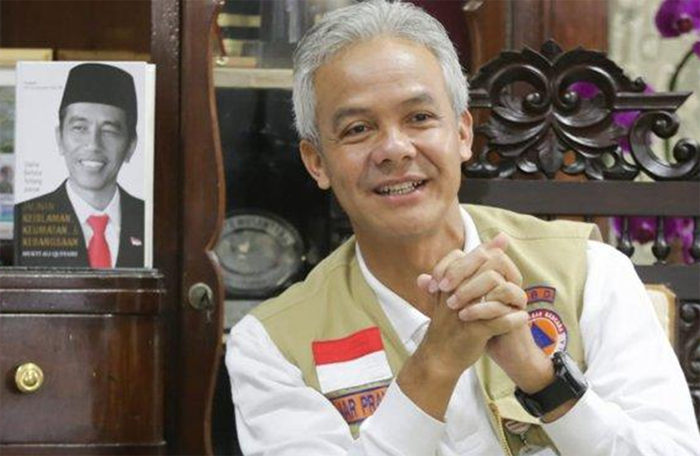
Indonesian president in waiting … Ganjar Pranowo
Joko Widodo and Prayuth Chan-o-cha have been the rising or dominant political figures in Indonesia and Thailand respectively for a decade, in very different circumstances. But in the past month the cycle has shifted and both men are being confronted with the reality they now have a limited time left in power.
Prayuth’s situation as prime minister in a military-aligned government seems more terminal with an election due by May next year after a massive rejection of his Palang Pracharath Party’s candidate in the Bangkok governor’s election in May. Prayuth became army chief in 2010 and a leading royalist opponent of the populist Shinawatra family’s political movement. He led the 2014 military coup against Prime Minister Yingluck Shinawatra and subsequently became elected prime minister in the first post-coup election in 2019.
For a country that has experienced about a dozen military coups and then turmoil returning to some form of democracy, Prayuth, 68, has managed a relatively lengthy and stable period of limited democracy.
But his pro-military coalition government is now facing growing internal fissures and renewed external opposition from civil society protesters even though it has allowed landmark changes on social issues including use of cannabis and same sex marriage. It faces a vote of no confidence, which may see more splits in its ranks and open the way for an alternate leader to challenge Prayuth ahead of the election next year where the Shinawatra-family associated Pheu Thai looks set to again do well.
The latest opinion poll now ranks Thaksin’s daughter Paetongtarn as the preferred prime ministerial candidate with 25 per cent support, with Prayuth ranked fourth holding only half that support.
In Indonesia, Widodo, 60, asserted his power this month with a ministry reshuffle that brought yet another political party – the National Mandate Party (PAN) – deeper into his sprawling seven party coalition government and yet another top military figure into his inner circle. (The appointment of PAN chief Zulkifli Hasan as trade minister may also be another disruption to implementing the bilateral trade deal with Australia.)
Widodo emerged as a national figure as Jakarta governor in 2012 after serving as a reformist provincial mayor. Speculation that he wants to somehow extend his second (and final) five-year term has waned as the country has now officially launched the process towards a mega election in 2024. For the first time, Indonesians will elect the new president and national legislators on the same day in February, and then regional leaders later in November.
Widodo now appears more focused on influencing who takes over after him by nurturing links to the key party blocs within his coalition which will nominate competing candidates. The rising presidential candidate is currently Central Java Governor Ganjar Pranowo, who shares a similar geographic, party and Jakarta outsider status to Widodo in his early years. Widodo appears to be supporting Ganjar via his seven-million-strong volunteer support group Projo.
But there is still a long way to go in the wrangling over a presidential and vice-presidential team between the incumbent elite figures and outsiders in Southeast Asia’s most vibrant democracy.
- While there are many candidates, the winning presidential and vice-presidential ticket in Indonesia is still far from clear, says Deasy Simandjuntak at East Asia Forum.
JAPAN VOTES (AGAIN)
Prime Minister Fumio Kishida will face the first real test of his promise to bring a new form of capitalism to Japan on July 10 when the country will hold an election for its upper chamber – the House of Councillors.
Half the chamber is up for election with 74 members elected in single or multi-member prefectural districts and 50 elected from a national list.
Kishida only took over as prime minister last October from the long-serving Shinzo Abe and sought to fashion a different political persona to the conservative and nationalist Abe. He then called a snap election for the lower house where his Liberal Democrat Party won comfortably, but lost seats.
But his rhetoric about creating a new form of capitalism which would raise living standards and better distribute Japan’s economic growth has produced little substantive policy change so far.
So, announcing the election he sought to frame it as a battle over who could best handle international security challenges saying: “From the fight against COVID-19 and Russia's aggression against Ukraine that is undermining the foundation of the international order to global inflation, we are confronted with historic challenges.”
While the LDP is likely to retain a majority in the upper house with its coalition partner, the election will still be interesting for what it reveals about the state of Japan’s fractious opposition parties, with new right, centre and leftist parties emerging in recent years.
- Richard Katz says at Substack Kishida simply caved to critics in the LDP and financial markets who accused him of promoting socialism with his promise to better distribute the fruits of growth.
CHINA’S NEW GREAT WALLS
While Australian attention has been focused on China’s failure to win a new pan-Pacific security agreement, the Beijing government has meanwhile been equally active trying to build a broader security web in response to the threat of a more decoupled world and the fading allure of its Belt and Road Initiative.
In the past several weeks alone, President Xi Jinping has sought to expand the BRICS group as an alternative the Group of Seven rich countries; launch a Global Security Initiative to influence how other global institutions work; and outline rules for the deployment of Chinese military forces in non-war situations. They came ahead of this week North Atlantic Treaty Organisation meeting in Spain to which the leaders of Australia, Japan, South Korea and New Zealand have been invited to bolster a global democratic bloc.
The flurry of Chinese global security measures in the wake of the western sanctions on Russia over the Ukraine invasion coincide with continuing more targeted initiatives to become more economically self-sufficient, for example by creating a central iron ore buying office and promoting a Chinese alternative to the SWIFT international payments system.
Xi proposed the Global Security Initiative at the Boao Forum in April with few details beyond reiterating the principle of “indivisible security” in which not country can strengthen its own security at the expense of others. While most observers have viewed this as a response to the Russian sanctions, this Carnegie Endowment analysis argues “this view overlooks how the initiative is China’s sustained attempt to place itself at the center of agenda-setting and dictating the rules of engagement in the Asia-Pacific.”
The expansion of the BRICS (Brazil, Russia, India, China and South Africa) groups was announced after a foreign ministers meeting in May as the first expansion since South Africa joined in 2010. Saudi Arabia, Indonesia, Iran and Argentina were amongst countries mentioned as possible members. But previous talk about expansion has foundered, as the group’s existing members discover they have less in common than was expected when the group was established. And when China hosted an online BRICS leaders’ summit in late June, the statement simply said: “We support promoting discussions among BRICS members on BRICS expansion process.”
Meanwhile, the announcement of a set of rules to provide a “legal basis for ‘military operations other than war’ (MOOTW)” has prompted debate about whether they are meant to further lay the groundwork for an invasion of Taiwan or to provide clarity about how China would rescue citizens caught up in civil emergencies in other countries. The rules also take on greater relevance as China has become a substantial contributor to United Nations peacekeeping operations.
ASIAN NATION
ON A SLIDE
The richest Asian Australians have suffered a loss of stature over the past year despite rising property and share markets generally boosting the assets of many of the country’s wealthy people. But their numbers have slightly grown so that they now constitute 8.5 per cent of the people on the annual Rich List published by The Australian Financial Review.
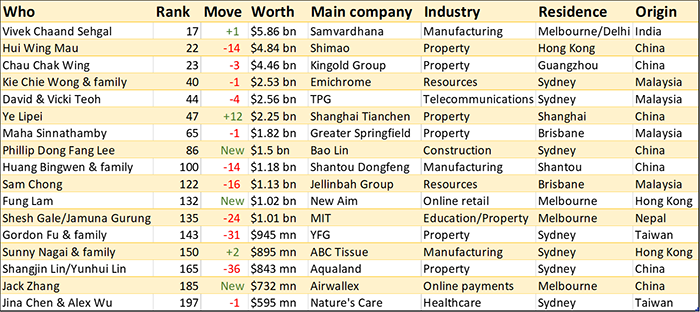
Source: Author calculations from Australian Financial Review Rich List
While there are only marginal changes in rankings within the sub-group of people from the Asian diaspora, in the overall list they have collectively tended to fall down the ranks compared with last year.
The three new entrants – Phillip Dong Fang Lee, Fung Lam and Jack Zhang – all originally come from China which means the Asian sub-list is tilting further towards being dominated by people of mainland Chinese origin at a time when the bilateral relationship has been strained. The list only includes Australian citizens.
While the list is slowly reflecting Australia’s more Asian population, the 8.5 per cent share is still only half the 16 per cent of people who declared an Asian ancestry in the 2020 census. But Asian people still seem to be doing better in the less institutionalised world of private wealth creation than in the more formalised ranks of Australia’s company boards. A 2020 survey of ASX300 companies found that only five per cent of directors came from non-Anglo-Celtic backgrounds, which is a wider group than just Asian Australians.
And the Asia diaspora penetration of the Rich List still exceeds its success in politics. Even though there was significant rise in the number of Asian-Australians joining Parliament at the last election, they still only provide seven per cent of the members of the House of Representatives.
NEW BUSINESS DIASPORA RISES
An emerging generation of younger entrepreneurs from Australia’s Asian diaspora communities are opening business connections to the region beyond the old, small scale trading links that older diaspora families traditionally maintained.
That’s the key finding from a study of these younger diaspora members which suggests they are more able to diversify into new business sectors in Asia than other Australian businesses and then bring fresh ideas back.
“Conventional diaspora businesses serve their local migrant communities and maintain family links to their place of origin. In contrast, our Asian-Australian entrepreneurs operate in mainstream markets and pursue business in new industries and across local, national and regional borders,” the study says.
The study by the University of Sydney Business School and the Commonwealth Bank of Australia also finds that Australia is more deeply integrated into Asian value chains than North American or European value chains in value-added terms and shows how these connections have deepened over the past two decades. But to underline the value of the new diaspora links it says that while Australia has benefitted from Asian growth, Australian industries – outside resources – are less open to regional trading partners than those from Singapore, Taiwan, Malaysia, Viet Nam, Thailand and South Korea.
Commonwealth Bank general manager Tim Browne says: “We believe this is the first report in Australia to present a snapshot of the new generation of Asian Australian entrepreneurs and their businesses and offer lessons for the integration of migrant entrepreneurs.”
Of the 72 entrepreneurs interviewed about two-thirds are of Chinese background, about half have been running their businesses for less than ten years and only four per cent were born in Australia with most the biggest proportion coming to Australia on skilled work visas.
About 65 per cent are involved in online commerce, they are involved with family business networks abroad or in Australia at least once a month and generally reported they had not been destabilised by the pandemic despite being integrated into regional business.
The study finds that the group are both a channel for large Asian companies to test products in Australia before expanding into larger western markets and a channel for bringing other market innovations into Australia.
PACIFIC COMPACT
As the Albanese government searches for new ways to engage with Pacific island countries, four economists have stepped up the push for making a more integrated labour market the core of a new relationship.
They have called for a regional compact in which a new Australian immigration policy in partnership with New Zealand would aim to boost employment skills across the region to make Pacific workers more able to work in Australia. This would range from more teacher exchanges to integrate education systems, to common professional standards and a consistent longer-term acceptance of new immigrants into Australia.
“Embedded in this shift is a necessary move from a focus on the short term – temporary migration, skills shortages and limited term aid programs – to long-term and comprehensive foundational policies that will be a permanent feature of Australia’s policy ecosystem to support economic prosperity in Australia, the Pacific and Timor-Leste for decades to come,” they write in the Australian Economic Review.
These ideas are largely consistent with Pacific labour program changes under the previous government, the new permanent visa proposed by Labor and suggestions in the recent report from the Parliament’s foreign affairs, defence and trade committee. But the economists argue there is a need to move beyond “a country-by-country programmatic approach to a significantly more scalable and sustainable partnership”.
In what amounts to an ambitious long-term integration of the region via this labour market channel, they say: “Embedded in this shift is a necessary move from a focus on the short term – temporary migration, skills shortages and limited term aid programs – to long-term and comprehensive foundational policies that will be a permanent feature of Australia's policy ecosystem to support economic prosperity in Australia, the Pacific and Timor-Leste for decades to come.”
DEALS AND DOLLARS
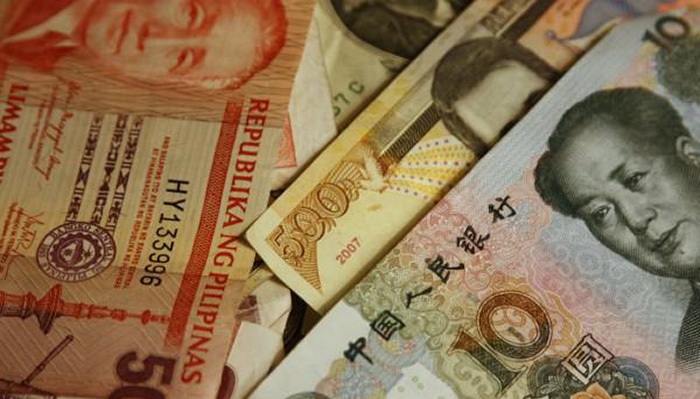
KOREAN FUND EXPANDS
South Korean investment firm Mirae Asset Global Investments has bought pioneering Australian retail fund provider ETF Securities implementing a long-held interest in expanding into Australia.
Mirae, which has assets under management of almost $1 trillion, has made the investment via its US-based subsidiary Global X and it follows an earlier smaller investment in the parallel Australian retail fund Betashares.
The sale of ETF Securities to Mirae for a reported $200-300 million marks the waning of a long career for retail fund innovator Graham Tuckwell who pioneered exchange trade fund products twenty years ago but is now concentrating on philanthropy.
Mirae chief executive Byungsung Lee said: “This acquisition underscores Mirae Asset’s continued commitment to maintaining industry-leading ETF businesses in key markets around the world and brings immediate scale to our operations in Australia,” he said.
VIET NAM NICKEL
Viet Nam’s biggest conglomerate is reportedly eyeing off a deal to take control of the nickel production from a mine run by Australian-listed company Blackstone Minerals near Hanoi. Blackstone owns 90 per cent of the Ta Khoa mine and is developing an integrated mining and refining battery metals business in Viet Nam.
Vingroup is biggest conglomerate with interests ranging from property to healthcare, but more importantly in this case the vehicle manufacturing industry with a focus on quickly shifting into electric vehicles.
The Australian Financial Review reported Blackstone is keen to get long term funding to develop the mine using a partnership model. The deal would be an important step towards the development of integrated supply chains between Australia and Viet Nam which have been envisaged in the two countries’ enhanced economic engagement strategies and the reports published by RMIT University and Asia Society Australia.
ATLASSIAN TURNS TO INDIA
Software company Atlassian has stepped up its operations in India and bilateral relations by becoming the principal sponsor of the annual Australia India Leadership Dialogue for the next two years.
Co-chief executive Mike Cannon-Brookes will now co-chair the fifth annual Dialogue, run by the Australia India Institute (AII), and to be held in New Delhi in September. He says the move underlines the increasing importance of India as a source for staff and for research. “India is not only Atlassian’s fastest growing R&D site, but our fastest growing talent location since opening our office in 2018. This is an important partnership for us as we continue to invest and grow our ambition in such a key tech market,” he said.
The move will help underpin the growing emphasis on technology cooperation between the two countries as part of the movement towards a comprehensive economic cooperation agreement, after tensions over trade liberalisation in agriculture and movement of Indian workers to Australia.
AII chief executive Lisa Singh said: “Indian tech companies in Australia continue to play a pivotal role in advancing our economic ties. The innovation shared by these players as well as the boom in start-ups make this such an exciting and dynamic growth area. As one of Australia’s business champions of India and through partnering with the Institute for this high-level Dialogue, Mike Cannon-Brookes has shown how committed he is to meaningful engagement with Indian counterparts.”
BELL FINALLY TOLLS
The sorry saga of the biggest Japanese company takeover in Australia is taking another step towards disappearing from public memory with a move by Toll Holdings to become a Singapore-based private company largely focused on Asia.
The move comes seven years after Japan Post launched a $6.5 billion takeover for the company as part of a broader plan by Japan Post to evolve from being a government-owned post office and bank to a regional logistics powerhouse. Toll had then been a listed Australian transport company since 1993.
The Australian Financial Review reported that Japan Post now declares its shareholding in Toll is valued at $1.4 billion after a series of write-offs and asset sales as it became clear it had overpaid for the company which turned out to be a poorly integrated group of subsidiaries.
Ironically, the quiet departure from Australia comes as the new management of what had been a key part of the Toll Australian parcels business – Global Express – is claiming that business is now doing well after it was offloaded by Japan Post as part of the Toll write-offs.
The Japan Post takeover in 2015 marked the emergence of a now well-established business trend: how Japan investment has overtaken the previous Chinese investment boom in Australia. And notably despite the Toll disaster, that trend is continuing.
POWERING VIET NAM
Macquarie’s Corio Generation has teamed up with Vietnamese company FECON to develop an offshore wind farm in a country with big potential for offshore renewable energy. The proposed 500 MW Vung Tau offshore wind farm may be among the first large-scale offshore wind projects to be built in Viet Nam.
Corio was created in March when Macquarie spun off its 15-gigawatt pipeline of offshore wind farms worldwide including Japan, South Korea and Taiwan. Chief executive Jonathan Cole said: “With its vast wind resources, Viet Nam can be a South-east Asian powerhouse in offshore wind, providing clean, affordable electricity, as well as supporting jobs and economic opportunities for local communities.”
Hydropower is the main source of renewable energy in Viet Nam, but the contribution from wind is expected to increase in coming years with plans to have 7000 MW of offshore wind power by 2030, with onshore and offshore facilities projected to supply 16 per cent of total electricity.
DIPLOMATICALLY SPEAKING
"China’s military build-up is now the largest and most ambitious we have seen by any country since the end of the Second World War. It is critical that China’s neighbours do not see this build-up as a risk for them. Because without that reassurance, it is inevitable that countries will seek to upgrade their own military capabilities in response. Insecurity is what drives an arms race."
- Defence minister Richard Marles, Shangri-La Dialogue, June 11
"China will never seek hegemony or engage in military expansion or an arms race. We do not bully others, but we will not allow others to bully us … It will be a historic and strategic mistake to insist on taking China as a threat and of an adversary or even an enemy … If you want to cooperate, we should promote mutual benefits and win-win results. However, if you want confrontation, we will fight to the end."
- Chinese defence minister Wei Fenghe, Shangri-La Dialogue, June 12
"We don't underestimate the difficulties that we've had in our bilateral relationship. The fact that this is the first meeting at a ministerial level in almost three years is very significant. We will take this as a step-by-step process. but the fact that we've been able to have this meeting today is an important step in the process."
- Marles after meeting Wei, June 12
"China, from where we sit, seeks to shape the world around it in a way that we’ve not experienced before. It raises challenges for Australia. Challenges that we intend to meet. In all that we do, we will have the courage to articulate Australia’s national interest and particularly when that differs from Chinese action."
- Marles, June 13 press conference
DATAWATCH
ASIA’S TOP PLACES TO STUDY
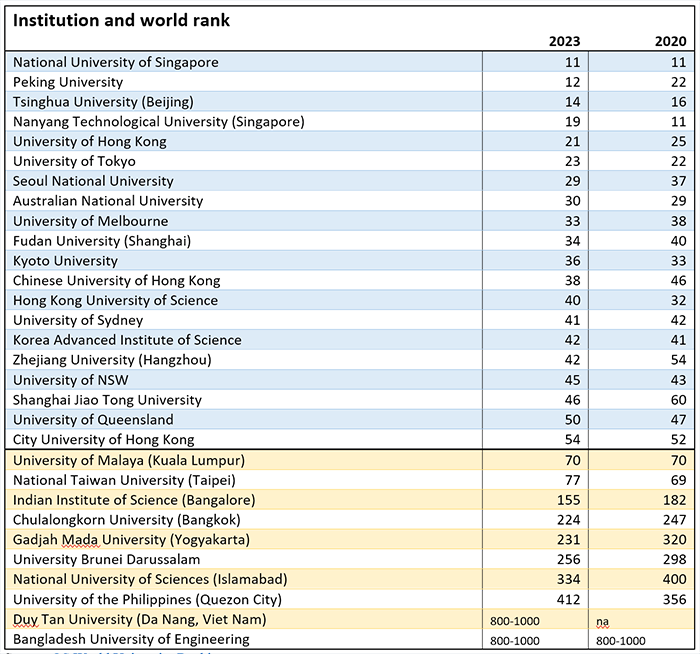
Source: QS World University Rankings.
The chart shows Asia’s top twenty tertiary institutions in Singapore, China, Japan, South Korea and Australia by their world ranking this year and four years ago, followed by the top universities in ten other jurisdictions.
ON THE HORIZON
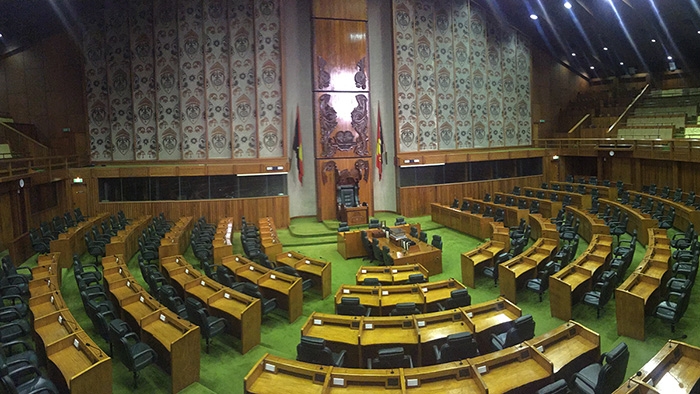
Papua New Guinea Parliament. Picture: Office of the Clerk
PNG VOTES
Papua New Guinea’s election finally gets under way on July 4 after a series of setbacks managing COVID-19, updating the election rolls, the election timing, and persistent concerns about security problems.
Voting for 118 seats in the parliament will continue for about a week although that time may be extended and is shorter than what was earlier announced. Results are not likely to be known until later in the month.
More than 3000 candidates are running for the seats which are split between 96 individual seats and 22 based on provinces
Australia has sent 130 defence members to provide logistics and air transport support to the PNG security and electoral authorities as Australia tries to compete with Chinese offers of assistance. PNG says 10,000 security personnel will oversee the voting.
But before voting had started, the Papua New Guinea Registry of Political Parties and Candidates Commission raised concerns about the conduct of supporters of major political parties and candidates at campaign rallies.
The election is likely to come down to a contest between incumbent Prime Minister James Marape, whose Pangu Party has endorsed 75 candidates, and former leader Peter O’Neill, whose Peoples National Congress party, has endorsed 95 candidates.
ABOUT BRIEFING MONTHLY
Briefing MONTHLY is a public update with news and original analysis on Asia and Australia-Asia relations. As Australia debates its future in Asia, and the Australian media footprint in Asia continues to shrink, it is an opportune time to offer Australians at the forefront of Australia’s engagement with Asia a professionally edited, succinct and authoritative curation of the most relevant content on Asia and Australia-Asia relations. Focused on business, geopolitics, education and culture, Briefing MONTHLY is distinctly Australian and internationalist, highlighting trends, deals, visits, stories and events in our region that matter.
We are grateful to the Judith Neilson Institute for Journalism and Ideas for its support of Briefing MONTHLY and its editorial team.
Partner with us to help Briefing MONTHLY grow. For more information please contact [email protected]

This initiative is supported by the Judith Neilson Institute for Journalism and Ideas.


